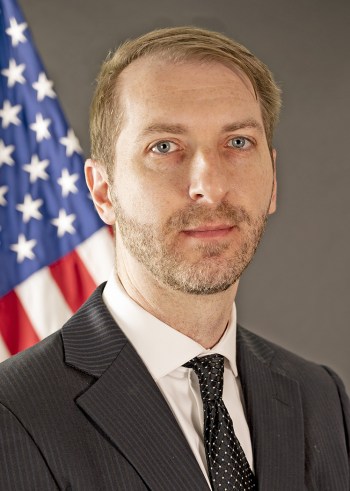Innovation Revolutionary is a regular series from the VA Innovation Ecosystem. The series focuses on VA employees who are disrupting the status-quo, breaking down barriers, and attempting to radically revolutionize Veteran care and employee experience.
How do providers make important health care decisions for our Veterans? Engaged, understanding, and personalized health care is at the forefront of those decisions.
Machine Learning
Machine Learning (ML) is helping providers make smarter decisions by analyzing health data in new and innovative ways.
Utilizing Machine Learning to Audit and Impact Prescription Benefit Decisions is a 2017 VHA Shark Tank Competition Gold Status project that identifies and reduces prescription drug billing errors.
Dr. Cory Fominaya, who created and piloted the program, is now expanding its capabilities as the Senior Innovation Fellow with Health Solutions, Population Health.
Senior Innovation Fellowship
Veterans Health Administration Innovation Ecosystem (VHA IE) offers several fellowship programs for VA Employees. These programs offer unique opportunities for emerging and accomplished frontline employees with a dynamic presence, passion for innovation and vision for the future.
The Senior Innovation Fellowship is for mature innovation projects that are ready to scale. Under a new title, Machine Learning Decision Support (MLDS), Dr. Fominaya has been spending the past year developing a cloud-based system that will improve the project’s capabilities. Fominaya’s experience with innovation made him a natural fit for the Fellowship.
Machine Learning and Veteran Care
“The value that machine learning brings to our Veterans is that it frees up clinicians’ time to focus on their patient during their visit,” said Fominaya, when asked about how machine learning benefits Veterans.
When Fominaya joined Charleston VA in 2011, he had to challenge outcomes and decisions when he began pulling and processing data. “I recognized the potential for inconsistency in medical and pharmacy benefits, which would lead to incorrect billing of Veterans for copays.”
Transforming the potential into measurable and sustained outcomes is why MLDS is being created. “Clinicians often exert significant effort to document a visit. By building a decision support system into the fabric of an electronic health record, clinicians can shift their focus more toward their patient.”
Fominaya developed a system to streamline the process and make it more efficient. That system has already been piloted at 10 VA medical centers and has been proven to be nationally scalable. Nearing the end of his Fellowship year, Dr. Fominaya says the program will help over one-million Veterans experience more accurate and consistent benefits.
The investment in MLDS will also benefit those who are granted new benefits for rated disabilities. “I remember a frustrated Veteran in Charleston who had been approved for $450 refund two years prior and had yet to be reimbursed. With MLDS we will be able to intervene faster and prevent those charges from happening.”
The Senior Innovation Fellowship has given Dr. Fominaya new insight into how driven the VHA Innovation Ecosystem is to improve Veteran care. “The Innovation Ecosystem’s interest in making sure this solution succeeds has been constant, and resources invested have helped the project mature. There’s a great debt of gratitude for their efforts”.
Interested in VHA Fellowships? Learn more on the Fellowships webpage. Want to support VHA IE’s innovation revolution? Visit our website to learn about opportunities to become involved in innovation at VA.
Topics in this story
More Stories
The Medical Foster Home program offers Veterans an alternative to nursing homes.
Watch the Under Secretary for Health and a panel of experts discuss VA Health Connect tele-emergency care.
The 2024 National Veteran Suicide Prevention Annual Report provides the foundation for VA’s suicide prevention programs and initiatives.







